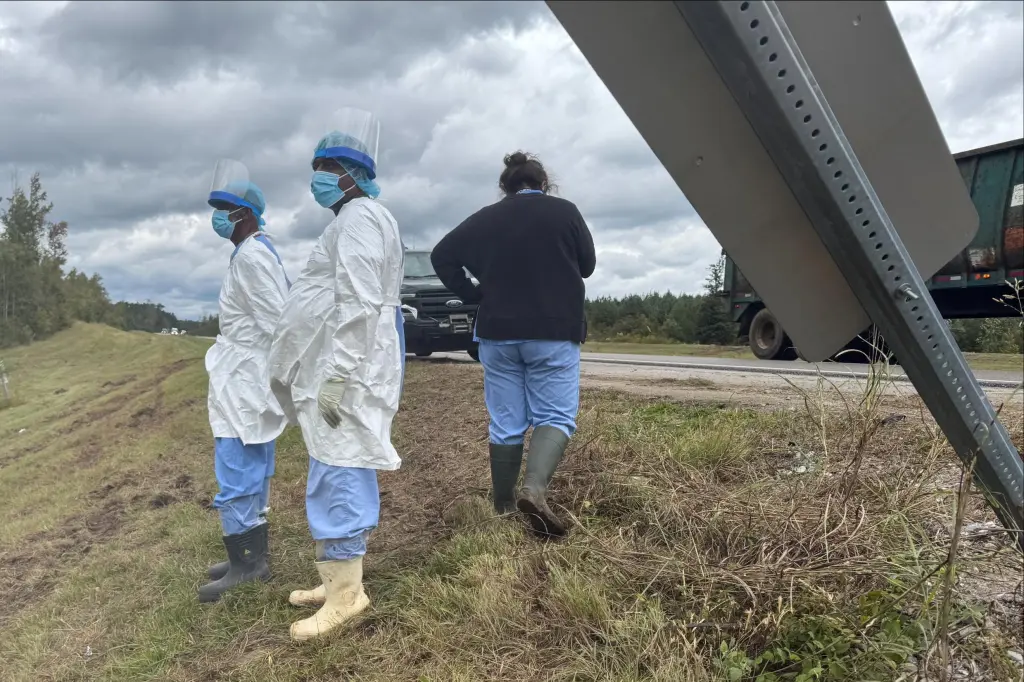Copyright Baltimore Sun

Like most others who heard the tragic news, I was saddened to learn that five monkeys were shot and killed by sheriffs last week, and two others shot by area residents this week, when they escaped a transport truck carrying them from a primate lab at Tulane University, after it crashed in Jasper County, Miss. Tulane’s is one of seven federally funded facilities in the United States that house large numbers of primates for use in experiments. The 21 monkeys being transported from Tulane are just a few of the approximately 100,000 primates currently held in these and other laboratories across the United States. Despite public opposition to the use of animals in experiments, these facilities continue to operate even though they have a long history of regular and numerous animal welfare violations. This latest incident also raises serious public health concerns. Reports acknowledged that the monkeys may have been potentially infectious. Monkeys used in research can carry viruses and bacteria that pose risks to humans, including hepatitis C and emerging pathogens. Transport accidents are not uncommon, and every time one occurs, communities are put at risk because laboratories continue to breed, acquire and ship monkeys across the country for experiments that have repeatedly failed to deliver meaningful results for human health. People are often surprised to learn that primate research is not an effective way of advancing medicine. Primate experiments fail to reflect human biology and diseases. Nearly 92% of drugs that show promise in animal testing — often involving primates — fail when they enter human trials, mostly due to unforeseen issues with safety and/or efficacy. Research has failed to deliver an HIV/AIDS vaccine that is effective in humans despite numerous “successes” in primates, and primate research into neurodegenerative diseases like Alzheimer’s and Parkinson’s has misled, rather than aided, understanding and progress. This is why scientists all over the world, as well as those who fund them and their research, are turning to modern and versatile human-relevant approaches, such as tissue chips, organoids, computational methods and high-throughput screening, which are more effective in drug development and disease modeling. As the acting director of research for the Physicians Committee for Responsible Medicine, it is my job to work with these scientists to ensure that they are aware of the many non-animal methods available to them. As these research failures have come to light, most Americans agree with this approach. More than 85% of 2,000 respondents polled last fall in a Physicians Committee/Morning Consult survey agreed that animal-based research should be phased out in support of superior methods that do not use animals. In a major step forward earlier this year, both the National Institutes of Health and the Food and Drug Administration announced that they will pursue non-animal approaches to research. However, there’s still a push in Congress to not only continue research on monkeys but to expand it. One of the recent Senate funding bills seeks $30 million of taxpayer dollars for the expansion of primate research, despite its well-documented and widely acknowledged scientific, economic and ethical problems. Many primates suffer injury or death because of poor care, including being scalded to death in cage washers, or suffering and dying from mistakes with laboratory heating or cooling, or in experimental protocols. Or being shot on a roadside after being involved in a collision. Ethical and effective research must focus on human-relevant models, not animals. This would benefit monkeys currently in laboratories who should be retired to sanctuaries where they can live in peace, in a natural habitat with trees and space to move freely. But it would also benefit humans, with superior, human-specific research into the diseases that afflict millions, translating to greater clinical and therapeutic benefits. This tragedy should be a turning point. We can and must choose a better path — one that protects public safety, advances science, and allows these intelligent, social animals to live the lives they deserve. I am hopeful that Congress will follow the lead of the administration in pursuing nonanimal approaches and shift taxpayer dollars now designated to expand primate research to instead support superior, nonanimal approaches that will advance human health.



